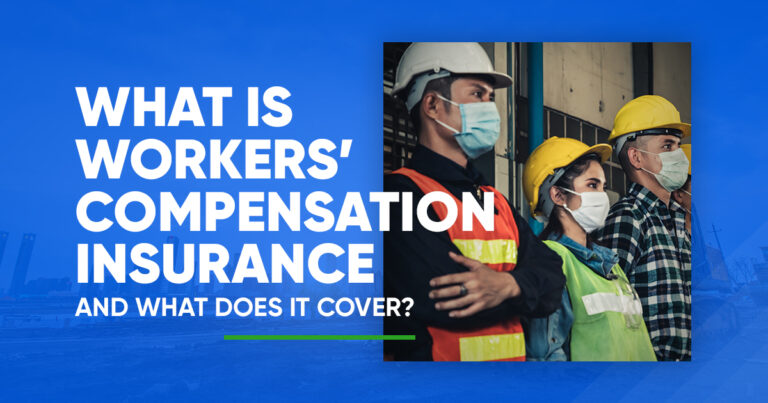Business Interruption Insurance: What You Need To Do To Protect Your Business
Running a business comes with risks. Buildings can burn, storms can flood, hackers can attack systems, and accidents can force shutdowns. Property insurance helps replace physical losses like equipment, inventory, or a building. But what about the income lost when a business cannot operate? That is where Business Interruption Insurance steps in.
This coverage does not just replace things. It protects the flow of money that keeps a company alive when disaster strikes. Without it, many companies would crumble under the weight of ongoing expenses while profits vanish. Let us explore in detail why this form of insurance is so vital, what it covers, what it excludes, and how to choose the right policy.
Business Interruption Insurance: What It Covers, What It Doesn’t, and Why Every Business Needs It
When an unexpected disaster hits, most business owners think first about repairing property damage. But here’s the thing: fixing a building or replacing equipment is just one part of the recovery. The bigger challenge is often surviving the downtime when income disappears but expenses keep piling up. That’s exactly what Business Interruption Insurance is designed to handle.
It’s not about repairing walls or replacing machines. That’s what property insurance is for. This policy ensures that the business has the financial support to survive the weeks or months it takes to get back on its feet. Let’s dig into what this insurance covers, what it doesn’t, and why it’s often the key to survival.
What Business Interruption Insurance Covers
Loss of Income
The central benefit of Business Interruption Insurance is replacing income that would have been earned if business operations hadn’t been interrupted. To calculate this, insurers look closely at a company’s financial records.
They start by reviewing sales reports. These records help project how much money would have come in if the business had stayed open. For example, if a company consistently brings in $100,000 in monthly sales, insurers use that history as the baseline for compensation.
They also examine profit and loss statements. These statements give a clearer picture of operating profit margins and net earnings. Insurers want to know not only what sales would have looked like, but also what profit the business would reasonably have expected during the closure.
Another important factor is seasonal trends. Many businesses don’t generate revenue evenly throughout the year. A toy shop might make half its annual sales in December, while a beach resort thrives in July. These seasonal peaks are factored into the calculation so companies aren’t penalized for being highly dependent on certain months.
Take the example of a bakery that earns 40 percent of its yearly sales during the holiday season. If a fire damages its ovens in late November, Business Interruption Insurance would cover the income the bakery would have expected in December. Without that protection, losing just that one crucial month could lead to permanent closure.
Operating Expenses
Closing the doors temporarily doesn’t mean expenses stop. Bills keep arriving, and without help, they can sink a business fast. Business Interruption Insurance makes sure ongoing costs are covered during downtime.
Rent or mortgage payments still need to be paid even when operations are suspended. This coverage ensures that the company doesn’t lose its physical location due to missed payments.
Employee salaries are also protected. Staff often look for stability, and if paychecks stop, they’ll look for jobs elsewhere. Coverage allows payroll to continue, which helps retain talent and keeps the business ready to restart quickly once repairs are done.
Utility bills such as electricity, internet, and water continue regardless of whether production or sales are happening. The insurance steps in to keep those accounts current, preventing additional financial stress.
Taxes and loan repayments don’t go away just because a business is closed. Governments and lenders still expect payment. Coverage ensures these obligations are met on time so the business doesn’t face penalties or strained credit. By covering these operating expenses, the insurance buys the company breathing room, letting owners focus on recovery rather than fighting to keep creditors off their back.
Temporary Relocation Costs
Sometimes waiting for the main facility to be repaired simply isn’t an option. Some businesses need to keep serving customers right away, even if that means moving. Business Interruption Insurance helps cover the costs of setting up elsewhere.
The biggest expense is often rent for a temporary site. Whether that’s an office, warehouse, or retail store, the insurance pays for the space so operations can continue.
There are also costs tied to moving equipment and stock. Heavy machinery, sensitive technology, or large inventories can be expensive to relocate. Coverage helps ease that financial burden.
Setting up the temporary space adds another layer of costs. Desks, computers, shelving, or signage may need to be purchased or rented. Insurance helps cover these outlays so the new space can function as a proper business location.
Consider a clothing store hit by flooding. Instead of shutting down completely for several months, the store might open a temporary pop-up in a nearby mall. Business Interruption Insurance would cover both the rent and the setup, allowing the store to stay visible, serve customers, and keep revenue coming in.
Extra Expenses
Disruptions often create costs that no one could have planned for. Business Interruption Insurance recognizes that and provides coverage for those unplanned but essential expenses.
One example is special equipment rental. If machines are damaged, a company might need to rent replacements in order to keep up with production. For instance, a printing company might rent industrial printers to meet client deadlines while waiting for its own machines to be repaired.
Another example is outsourced production. If a manufacturer cannot use its own facility, outsourcing the work to another company can help fulfill customer contracts. This prevents both revenue loss and damage to business relationships.
Emergency marketing efforts also fall into this category. A business may need to launch campaigns to let customers know where they’ve relocated or when they’re reopening. Without this communication, customers might assume the company has shut down for good.
These extra expenses aren’t part of day-to-day operations, but they often determine whether a business recovers quickly or struggles to get back on its feet.
What Business Interruption Insurance Does Not Cover
Just as important as knowing what’s covered is understanding what’s excluded. Misunderstandings here often lead to frustration when it’s time to file a claim.
Physical Damage
This insurance does not cover repairing damaged buildings or replacing destroyed equipment. Those costs are handled by property insurance. Business Interruption Insurance only steps in to cover the lost income and extra expenses tied to downtime. For full protection, both policies are needed.
Partial Closures
Most policies require a complete shutdown before benefits kick in. If only part of a business is closed—say, half of a supermarket while the other half stays open—insurers usually deny claims for lost income.
Utilities and Equipment Breakdown
Losses from a sudden power outage, water supply issue, or normal equipment breakdown aren’t covered. Businesses that rely heavily on utilities or machinery often need add-on riders or separate policies to address those risks.
Pandemics and Government Shutdowns
The COVID-19 crisis revealed a massive limitation in many policies. Unless specifically included, pandemics and government-mandated shutdowns aren’t covered. Many business owners were shocked to learn their policies didn’t apply during lockdowns. That’s why reading the fine print and adding extra coverage for such events is essential.
Conclusion
Business Interruption Insurance is not just an add-on policy. It is a financial lifeline. From covering lost income and operating expenses to relocation costs and extra expenses, it ensures businesses survive long enough to recover.
Whether you are running a small startup or managing a multinational corporation, protecting the revenue flow is essential. Disruptions are inevitable. Financial collapse does not have to be. Business Interruption Insurance provides stability, protects employees and customers, and strengthens resilience. For any company serious about long-term success, this coverage should sit at the center of its protection strategy.




